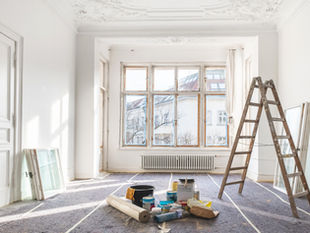As winter sets in and temperatures drop, your home’s windows play an obviously crucial role in keeping your living space warm, comfortable, and energy efficient. However, older or damaged windows can struggle to do their job well, leading to higher heating bills and a less cozy home. Sometimes the damage is invisible to see until winter makes it visible. Also, windows that are installed incorrectly become quite obvious thanks to winter.

Winter can and will tell you a lot about your home and potential springtime repairs. But how do you know if it’s time to replace your windows or you need an expert to repair?
Here are the top signs to watch for during the winter months:
1. Drafts and Cold Spots
Feeling a chilly breeze near your windows, even when they’re closed, is a clear sign that something’s wrong. Drafts can result from poor sealing, gaps, or warped frames, and even home settling, allowing cold air to seep inside. If you notice these drafts, it might be time to consider replacing your windows with energy-efficient models, but it’s best to have a professional come out to give their expert advice.
2. Condensation Between the Panes
While some condensation on the interior or exterior of your windows is normal, moisture trapped between double or triple panes indicates a broken seal. This reduces the insulating ability of your windows, allowing more heat to escape and making your heating system work harder, which is not the reason you bought these type of window. If they’re not working correctly, it could have been an installation issue or something with the window itself.
3. Difficulty Opening or Closing Windows
Windows that are hard to open, close, or lock can be more than an inconvenience—they can be a safety hazard and an indicator of structural problems. While this can sometimes be due to painting the seal, most occurrences involve warped or damaged frames which can exacerbate energy loss during the colder months and put pressure on the frame and window itself.
The rule of thumb is to not to try and force the window open if it will not do so easily. You can risk breaking the window altogether, leaving you in a very cold home.
4. Noticeable Increase in Energy Bills
If heating costs are unexpectedly high this winter, your windows might be to blame. Older windows or those with poor insulation can let heat escape, forcing your furnace to work overtime. Investing in replacement windows can save you money in the long run.
It’s important to note that you should check gas prices, which effect cost of heat in some areas, but if you do live in a home with older windows, it could be the primary culprit.
5. Ice Build-Up on the Inside of the Glass
Seeing frost or ice on the interior side of your windows is a major red flag. This usually means the window’s insulating properties are inadequate, allowing too much heat to escape and cold air to settle inside. Unfortunately, this likely occurred during installation.
You can, before getting new windows installed, be sure to talk with your contractor and ask what happens if they are installed incorrectly. After all, windows are no small investment, and you should know that the contractor will make it right.
6. Visible Damage or Wear
Inspect your windows for cracks, chips, or rotting frames. Damaged windows not only look unappealing but also compromise your home’s ability to keep the cold and heat out. Additionally, deteriorating frames can lead to more serious issues like water damage or mold from rain and weather that is able to get inside the frame.
7. Fading Furniture and Floors
If the areas near your furniture or floors show signs of fading where the light comes in from the window, it can be a sign that your windows aren’t effectively blocking UV rays. Most modern windows now include coatings to reduce UV exposure, protecting your interior furnishings and wood floors. All other investments worth taking care of, along with reducing overall exposure to people in the home.
8. Persistent Noise Pollution
Do you hear everything happening outside, even with your windows shut? Poorly insulated or older windows can let sound travel freely into your home. Replacing them with double- or triple-pane options can significantly reduce noise and improve comfort. Ensuring they are well insulated during installation can also assist with reducing further outside noise coming in.
Why Winter is a Great Time to Inspect Your Windows
Winter is the perfect season to assess your windows because the issues become more noticeable in extreme weather conditions. As temperatures shift throughout the year, winter offers a unique time to identify window damage because cold air causes seals to contract allowing for gaps and drafts to be seen and felt.
Identifying and addressing these problems now ensures you stay comfortable through the coming hot months as well as the following cold months, and so on.
What to Do Next
If you’ve noticed any of these warning signs, it might be time to consider a window replacement. Modern energy-efficient windows can improve your home’s insulation, reduce energy costs, and enhance its overall comfort and aesthetic appeal. An investment worth making.
Ready to upgrade your windows? Contact us today for a consultation in Porter and LaPorte Counties in Northwest Indiana and let us help you keep the winter chill where it belongs—outside.









